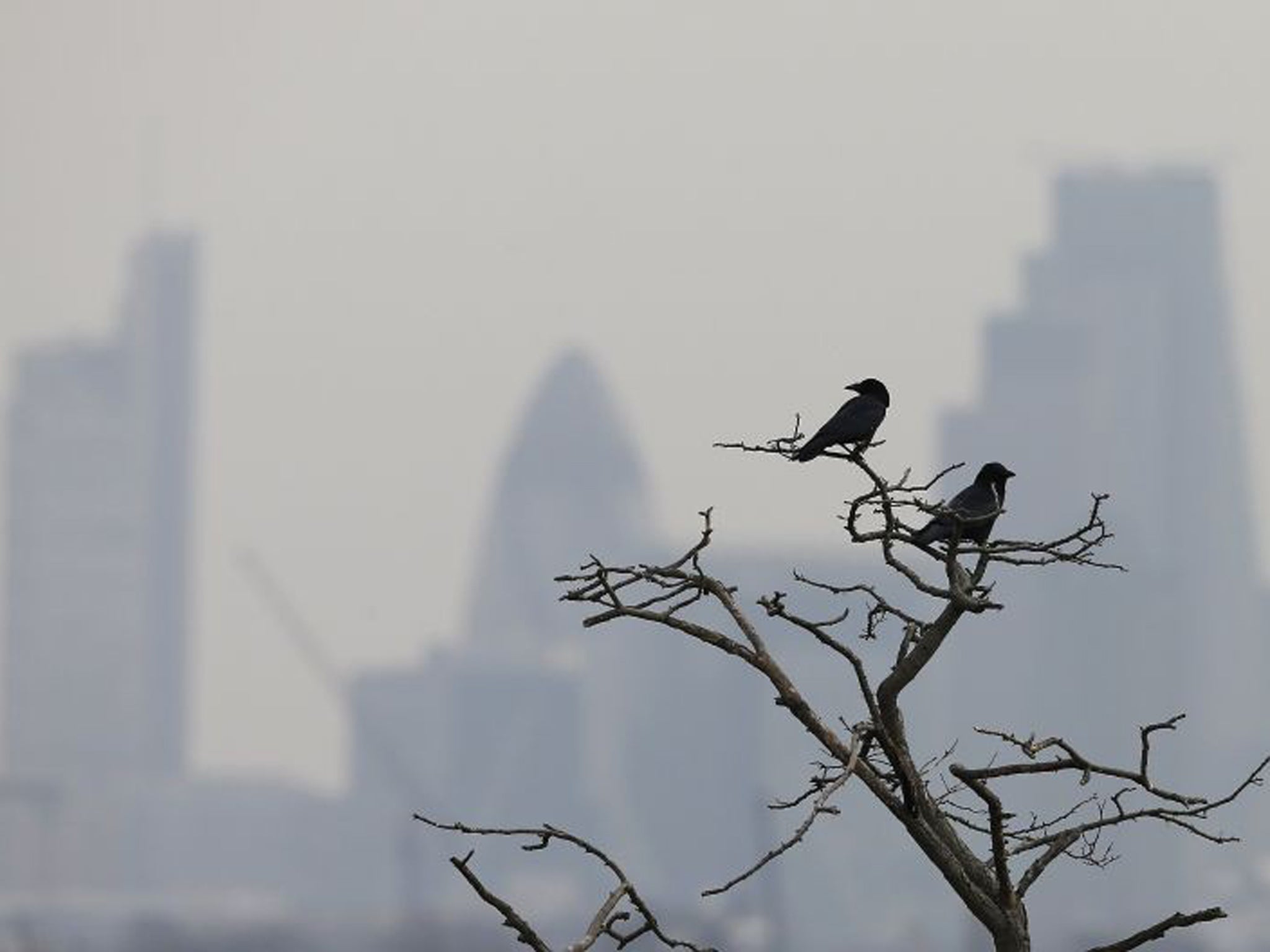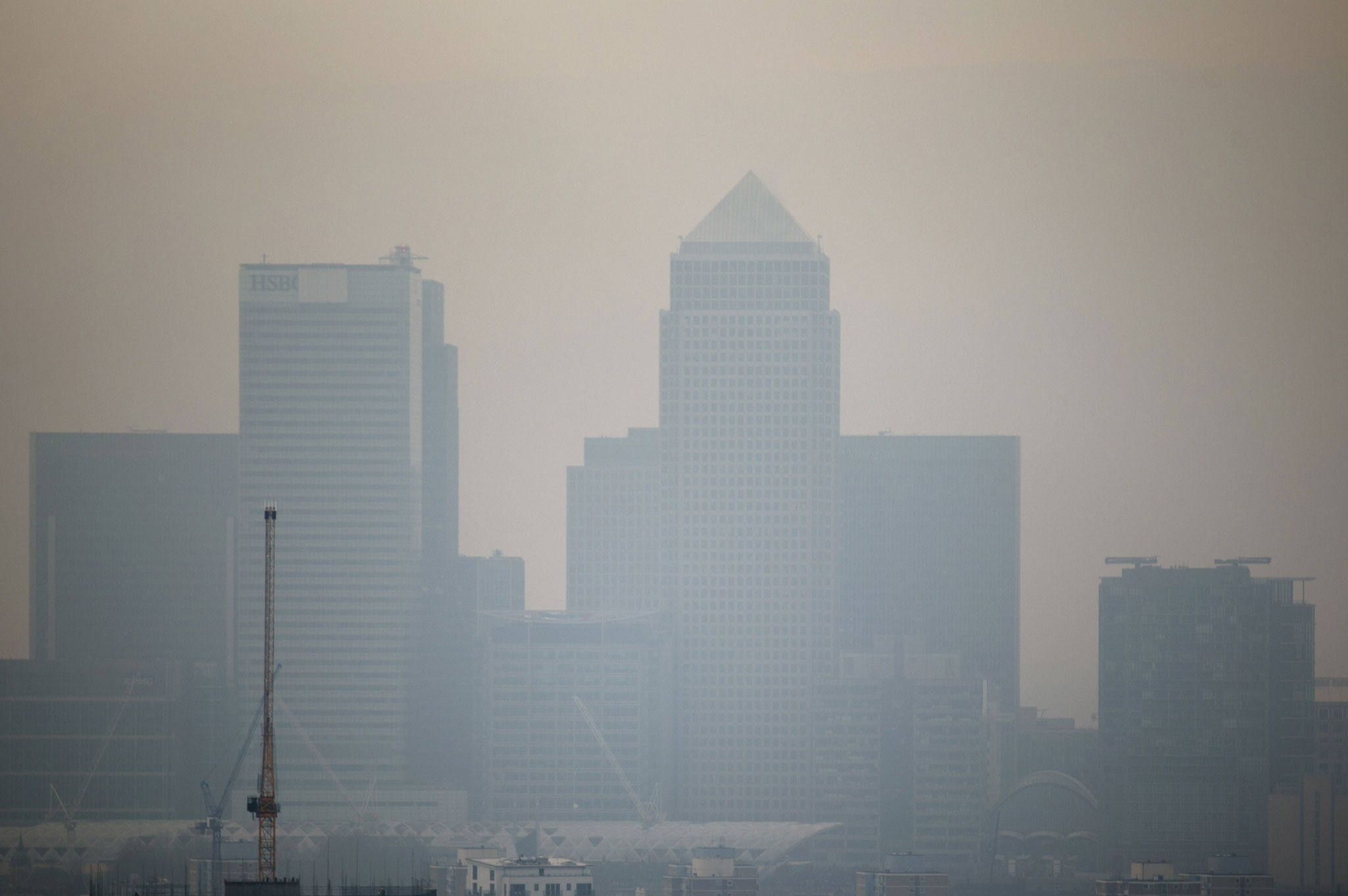UK smog and air pollution: spike in 999 calls over breathing problems
Schools warn children not to play outdoors

Your support helps us to tell the story
From reproductive rights to climate change to Big Tech, The Independent is on the ground when the story is developing. Whether it's investigating the financials of Elon Musk's pro-Trump PAC or producing our latest documentary, 'The A Word', which shines a light on the American women fighting for reproductive rights, we know how important it is to parse out the facts from the messaging.
At such a critical moment in US history, we need reporters on the ground. Your donation allows us to keep sending journalists to speak to both sides of the story.
The Independent is trusted by Americans across the entire political spectrum. And unlike many other quality news outlets, we choose not to lock Americans out of our reporting and analysis with paywalls. We believe quality journalism should be available to everyone, paid for by those who can afford it.
Your support makes all the difference.Ambulance services have reported a spike in 999 calls as a combination of Saharan dust and record levels of air pollution continue to plague the UK today.
The London Ambulance Service said it saw a 14 per cent increase in emergency calls for patients with breathing problems yesterday, from an average of 200 calls to 227.
Deputy medical director Fenella Wrigley said it was a "busy time for the LAS" as more people are calling with breathing difficulties, asthma and heart problems.
The smog-like conditions have caused leading experts to advise schools to keep children indoors in the worst affected parts of England, while the elderly and vulnerable are being urged to reduce the amount of exercise they do outside.
A perfect storm of dust from the Sahara, emissions from the Continent, low south-easterly winds and domestic pollution has caused air quality to plummet while pollution levels soar in England and Wales.
An overnight poll of 532 asthmatics for Asthma UK found 30 per cent have suffered an attack as a result of the pollution and 84 per cent reported using their blue reliever inhaler more often than usual.
Professor Frank Kelly, professor of environmental health at King's College London and a member of the Department of Health's Committee on the Medical Effects of Air Pollution, said keeping children indoors would help reduce any potential long-term effects.
"As a general response this is a good approach as children tend to run around outside and therefore breathe deeper," he told The Guardian.
"Thus, on days like this they will be aspiring a lot more pollution if outdoors than when they are breathing normally (hopefully) inside."

Pollution levels have already reached level nine (high) this morning in the South East, Greater London and Eastern England, the Department for Environment, Food and Rural Affairs (Defra) has reported.
Very high levels of pollution are also expected later today for across the East Midlands.
Those with lung and heart conditions have been told to avoid strenuous activity outdoors while people suffering symptoms of pollution - including sore eyes, coughs and sore throats - should cut down the amount they do outside, health experts said.
Asthmatics have been warned of the need to use their blue reliever inhalers more often as they could be prone to attacks over the next few days.
Dr Helen Dacre, a meteorologist at the University of Reading, warned the dust from the Saharan desert and winds had combined to create a potentially "toxic" storm that could cause "unpleasant and dangerous effects on health", both long and short term.
She said the problem was particularly bad yesterday because weather conditions had conspired to create "a perfect storm for air pollution".
Health warnings from Public Health England (PHE), Asthma UK and Defra come parts of England are experiencing the highest level of air pollution ever recorded by the government.
Across much of England, moderate to high air pollution levels were measured yesterday, with level eight (high) in the South East and Eastern regions and level seven (high) in Greater London.

Prof Kelly added: "Whether home-produced or arriving from the continent, the tiny particles we take into our bodies with each breath cause immediate problems for some individuals such as those with asthma and contribute to longer term problems for most of us in the form of heart disease and stroke."
Kay Boycott, chief executive of Asthma UK, said: "Asthma UK warns the 3.6 million people at increased risk to be sure they always have a working blue reliever inhaler on them and take their preventer inhalers as prescribed."
Additional reporting by Press Association
Join our commenting forum
Join thought-provoking conversations, follow other Independent readers and see their replies
Comments